Blood Lipid
How to submit an article:
- Registered users can submit any published journal article that has a unique DOI (Digital Object Identifier) name or link to Research Hub.
- For example, you can paste the full DOI link:
https://doi.org/10.1109/5.771073or just the DOI name:10.1109/5.771073into the field above and click submit. - The person who is first to submit a valid article to Research Hub will forever be credited for it, and every article submission earns you +6 Research Points.
Related Topics
Published research studies are articles that present the findings of original research that has undergone a peer-review process and has been made publicly available in scholarly journals, books or other media.
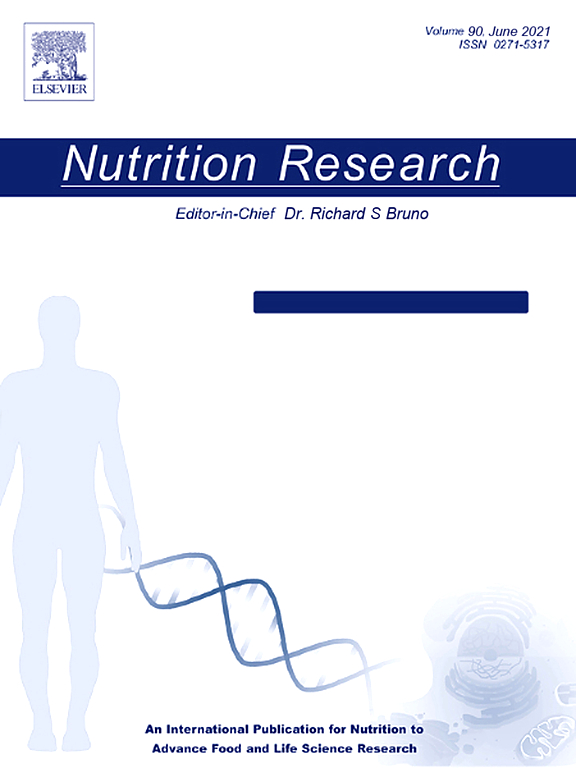
Pecan-enriched diet improves cholesterol profiles and enhances postprandial microvascular reactivity in older adults
2023 Mar Nutrition Research Cogan B, Pearson RC, Paton CM, Jenkins NT, Cooper JA
Daily consumption of 68 g of pecans for 4 weeks resulted in greater reductions in fasting total cholesterol, low-density lipoprotein (LDL) cholesterol, non-high-density lipoprotein cholesterol, LDL particle number, and LDL medium compared to a nut-free diet. Postprandial triglyceride levels were suppressed with pecan consumption, and improvements in microvascular reactivity were observed. Fasting macro- and microvascular function remained unaffected. The findings suggest that pecan consumption may contribute to improved vascular health and reduced cardiovascular risk in older adults.
Clinical Study Randomised Controlled Trial CholesterolBeneficial Effects of Sulforaphane-Yielding Broccoli Sprout on Cardiometabolic Health: A Systematic Review and Meta-analysis
2022 Oct 18 Jundishapur Journal of Natural Pharmaceutical Products Houshialsadat Z, Mirmiran P, Zare-Javid A, Bahadoran Z, Houghton C
Meta-Analysis Systematic Review Sulforaphane High Blood Pressure BroccoliConsumption of broccoli sprouts significantly lowers blood pressure, potentially due to properties of sulforaphane.

Natural Mineral Waters and Metabolic Syndrome: Insights From Obese Male and Female C57BL/6 Mice on Caloric Restriction
2022 May 24 Frontiers in Nutrition Narciso L, Martinelli A, Torriani F, Frassanito P, Bernardini R, Chiarotti F, et al.
Animal Study Mineral Water Cholesterol Blood SugarCertain natural mineral waters, when combined with a low-calorie diet, effectively reduce cholesterol and glucose levels in mice with metabolic syndrome.

The Effects and Safety of Chinese Herbal Medicine on Blood Lipid Profiles in Placebo-Controlled Weight-Loss Trials: A Systematic Review and Meta-Analysis
2022 Jan 17 Evidence-Based Complementary and Alternative Medicine Wong AR, Yang AWH, Li M, Hung A, Gill H, Lenon GB
CHM may provide lipid-modulating benefits on triglycerides and HDL cholesterol among participants with overweight/obesity, with the tendency for significant triglyceride reduction observed among overweight participants with high baseline triglycerides.
Systematic Review Meta-Analysis Chinese Herbal Medicine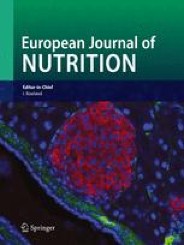
Effect of oat supplementation interventions on cardiovascular disease risk markers: a systematic review and meta-analysis of randomized controlled trials
2022 Jan 03 European Journal of Nutrition Llanaj E, Dejanovic GM, Valido E, Bano A, Gamba M, Kastrati L, et al.
Meta-Analysis Systematic Review Cholesterol Oats Cardiovascular DiseaseOat supplementation interventions can improve cardiovascular health markers among adults, regardless of their diet or metabolic conditions.
Research insights are moderated by the Research Hub team and offer an at-a-glance overview of interesting research findings.
2022 Jundishapur Journal of Natural Pharmaceutical Products
Consumption of broccoli sprouts significantly lowers blood pressure, potentially due to properties of sulforaphane.
Meta-Analysis Broccoli High Blood Pressure Sulforaphane
Beneficial Effects of Sulforaphane-Yielding Broccoli Sprout on Cardiometabolic Health: A Systematic Review and Meta-analysis
Houshialsadat Z, Mirmiran P, Zare-Javid A, Bahadoran Z, Houghton C

2022 Frontiers in Nutrition
Certain natural mineral waters, when combined with a low-calorie diet, effectively reduce cholesterol and glucose levels in mice with metabolic syndrome.
Animal Study Blood Sugar Cholesterol Mineral Water
Natural Mineral Waters and Metabolic Syndrome: Insights From Obese Male and Female C57BL/6 Mice on Caloric Restriction
Narciso L, Martinelli A, Torriani F, Frassanito P, Bernardini R, Chiarotti F, et al.

2022 European Journal of Nutrition
Oat supplementation interventions can improve cardiovascular health markers among adults, regardless of their diet or metabolic conditions.
Meta-Analysis Cardiovascular Disease Cholesterol Oats
Effect of oat supplementation interventions on cardiovascular disease risk markers: a systematic review and meta-analysis of randomized controlled trials
Llanaj E, Dejanovic GM, Valido E, Bano A, Gamba M, Kastrati L, et al.
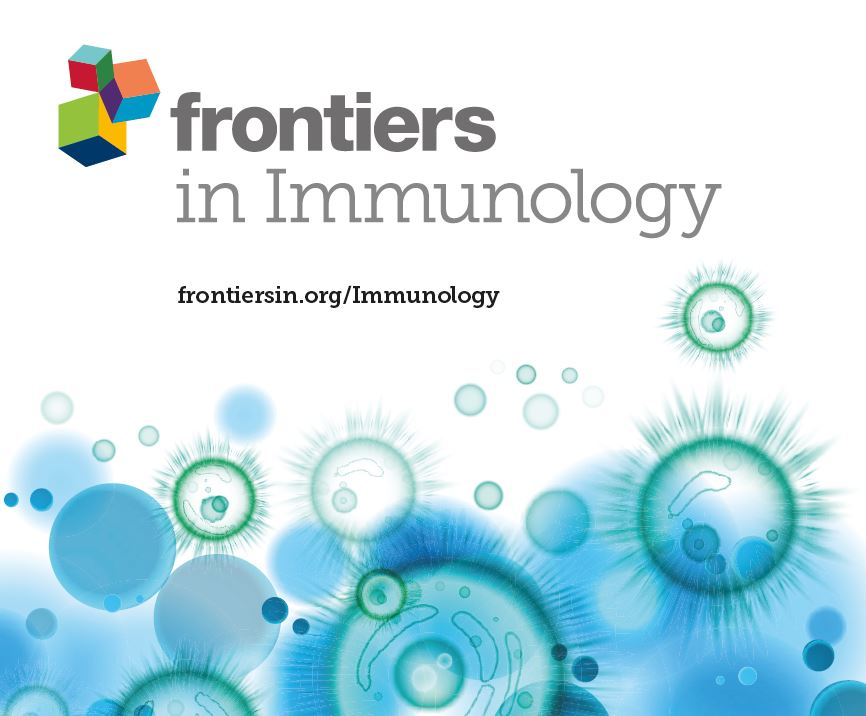
2021 Frontiers in Immunology
Consuming oats significantly lessens total and LDL cholesterol levels and mediates a prebiotic effect on the gut microbiome, contributing to its cholesterol-lowering ability.
Experimental Study Cholesterol Gut Microbiota Oats
The Prebiotic Effects of Oats on Blood Lipids, Gut Microbiota, and Short-Chain Fatty Acids in Mildly Hypercholesterolemic Subjects Compared With Rice: A Randomized, Controlled Trial
Xu D, Feng M, Chu YF, Wang S, Shete V, Tuohy KM, et al.

2021 Journal of Ethnopharmacology
Fenugreek supplementation improved lipid parameters in adults.
Systematic Review
Effect of fenugreek supplementation on blood lipids and body weight: A systematic review and meta-analysis of randomized controlled trials
Askarpour M, Alami F, Campbell MS, Venkatakrishnan K, Hadi A, Ghaedi E.
Review Articles
Review articles summarise and critically evaluate the current state of research on a specific topic or field by synthesising multiple primary research studies.
Beneficial Effects of Sulforaphane-Yielding Broccoli Sprout on Cardiometabolic Health: A Systematic Review and Meta-analysis
2022 Oct 18 Jundishapur Journal of Natural Pharmaceutical Products Houshialsadat Z, Mirmiran P, Zare-Javid A, Bahadoran Z, Houghton C
Meta-Analysis Systematic Review Sulforaphane High Blood Pressure BroccoliConsumption of broccoli sprouts significantly lowers blood pressure, potentially due to properties of sulforaphane.

The Effects and Safety of Chinese Herbal Medicine on Blood Lipid Profiles in Placebo-Controlled Weight-Loss Trials: A Systematic Review and Meta-Analysis
2022 Jan 17 Evidence-Based Complementary and Alternative Medicine Wong AR, Yang AWH, Li M, Hung A, Gill H, Lenon GB
CHM may provide lipid-modulating benefits on triglycerides and HDL cholesterol among participants with overweight/obesity, with the tendency for significant triglyceride reduction observed among overweight participants with high baseline triglycerides.
Systematic Review Meta-Analysis Chinese Herbal Medicine
Effect of oat supplementation interventions on cardiovascular disease risk markers: a systematic review and meta-analysis of randomized controlled trials
2022 Jan 03 European Journal of Nutrition Llanaj E, Dejanovic GM, Valido E, Bano A, Gamba M, Kastrati L, et al.
Meta-Analysis Systematic Review Cholesterol Oats Cardiovascular DiseaseOat supplementation interventions can improve cardiovascular health markers among adults, regardless of their diet or metabolic conditions.

Effect of fenugreek supplementation on blood lipids and body weight: A systematic review and meta-analysis of randomized controlled trials
2021 Jan Journal of Ethnopharmacology Askarpour M, Alami F, Campbell MS, Venkatakrishnan K, Hadi A, Ghaedi E.
Systematic Review Meta-AnalysisFenugreek supplementation improved lipid parameters in adults.

The effect of cinnamon supplementation on lipid profiles in patients with type 2 diabetes: A systematic review and meta-analysis of clinical trials
2020 Dec Complementary Therapies in Medicine Navid Jamali, Asma Kazemi, Javad Saffari-Chaleshtori, Mohammad Samare-Najaf, Vida Mohammadi, Cain C.T. Clark, et al.
Cinnamon supplementation significantly decreased serum triglycerides (TG), total cholesterol (TC), and low-density lipoprotein cholesterol (LDL-C) concentrations, but did not change high-density lipoprotein cholesterol (LDL-C) levels, in patients with type 2 diabetes.
Systematic Review Meta-Analysis Type 2 DiabetesClinical Trials
Clinical trials are research studies that involve people and are conducted to evaluate the safety and efficacy of new treatments or interventions, such as drugs, medical devices, or behavioural therapies.

Pecan-enriched diet improves cholesterol profiles and enhances postprandial microvascular reactivity in older adults
2023 Mar Nutrition Research Cogan B, Pearson RC, Paton CM, Jenkins NT, Cooper JA
Daily consumption of 68 g of pecans for 4 weeks resulted in greater reductions in fasting total cholesterol, low-density lipoprotein (LDL) cholesterol, non-high-density lipoprotein cholesterol, LDL particle number, and LDL medium compared to a nut-free diet. Postprandial triglyceride levels were suppressed with pecan consumption, and improvements in microvascular reactivity were observed. Fasting macro- and microvascular function remained unaffected. The findings suggest that pecan consumption may contribute to improved vascular health and reduced cardiovascular risk in older adults.
Clinical Study Randomised Controlled Trial Cholesterol
The Prebiotic Effects of Oats on Blood Lipids, Gut Microbiota, and Short-Chain Fatty Acids in Mildly Hypercholesterolemic Subjects Compared With Rice: A Randomized, Controlled Trial
2021 Dec 09 Frontiers in Immunology Xu D, Feng M, Chu YF, Wang S, Shete V, Tuohy KM, et al.
Experimental Study Randomised Controlled Trial Oats Cholesterol Gut MicrobiotaConsuming oats significantly lessens total and LDL cholesterol levels and mediates a prebiotic effect on the gut microbiome, contributing to its cholesterol-lowering ability.
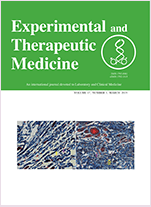
Effect of pomegranate juice consumption on biochemical parameters and complete blood count
2017 Jun 27 Experimental and Therapeutic Medicine Manthou E, Georgakouli K, Deli CK, Sotiropoulos A, Fatouros IG, Kouretas D, et al.
Randomised Controlled Trial Haemoglobin Red Blood Cell Count Iron Deficiency PomegranatePomegranate juice consumption over a short period promotes red blood cell production without significantly changing metabolic health and inflammation markers in healthy individuals.
Study Protocols
Published study protocols are detailed plans that outline the objectives, methodology, statistical analyses, and organisation of a research study that have been made publicly available for others to review and use as a reference.
Presentation Slides

Meta-Analysis
Consumption of broccoli sprouts significantly lowers blood pressure, potentially due to properties of sulforaphane.
Houshialsadat Z, Mirmiran P, Zare-Javid A, Bahadoran Z, Houghton C

Animal Study
Certain natural mineral waters, when combined with a low-calorie diet, effectively reduce cholesterol and glucose levels in mice with metabolic syndrome.
Narciso L, Martinelli A, Torriani F, Frassanito P, Bernardini R, Chiarotti F, Marianelli C

Meta-Analysis
Oat supplementation interventions can improve cardiovascular health markers among adults, regardless of their diet or metabolic conditions.
Llanaj E, Dejanovic GM, Valido E, Bano A, Gamba M, Kastrati L, Minder B, Stojic S, Voortman T, Marques-Vidal P, Stoyanov J, Metzger B, Glisic M, Kern H, Muka T

Experimental Study
Consuming oats significantly lessens total and LDL cholesterol levels and mediates a prebiotic effect on the gut microbiome, contributing to its cholesterol-lowering ability.
Xu D, Feng M, Chu YF, Wang S, Shete V, Tuohy KM, Liu F, Zhou X, Kamil A, Pan D, Liu H, Yang X, Yang C, Zhu B, Lv N, Xiong Q, Wang X, Sun J, Sun G, Yang Y

Systematic Review
Fenugreek supplementation improved lipid parameters in adults.
Askarpour M, Alami F, Campbell MS, Venkatakrishnan K, Hadi A, Ghaedi E.
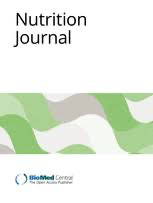
Systematic Review
The consumption of green tea significantly lowers low-density lipoprotein cholesterol and total cholesterol, but it does not affect high-density lipoprotein cholesterol or triglycerides.
Xu R, Yang K, Li S, Dai M, Chen G
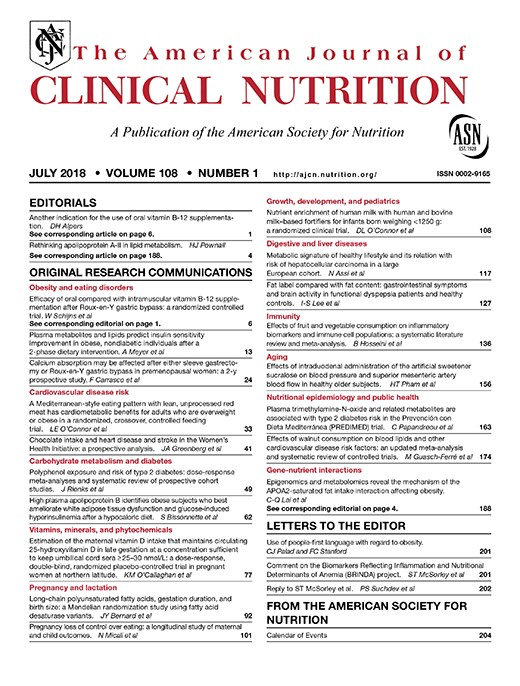
Systematic Review
Incorporating walnuts into the diet improved blood lipid profile without adversely affecting body weight or blood pressure.
Marta Guasch-Ferré, Jun Li, Frank B Hu, Jordi Salas-Salvadó, Deirdre K Tobias
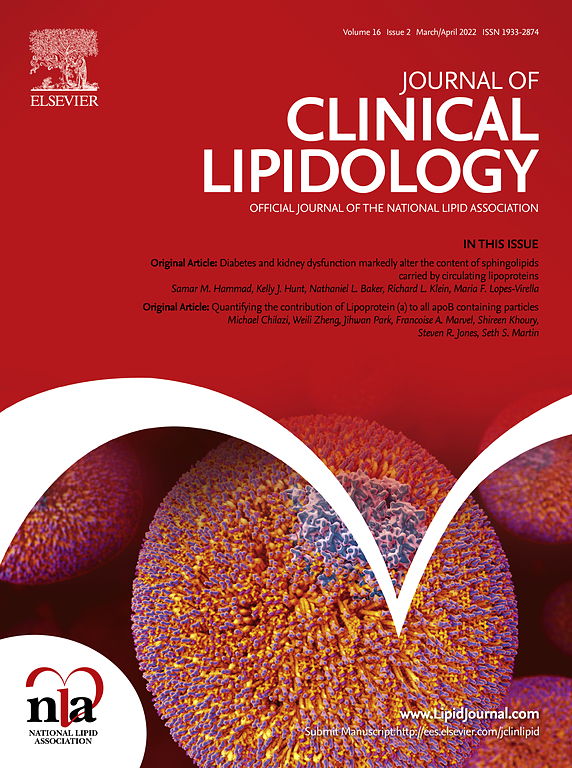
Systematic Review
Cinnamon supplementation significantly reduces blood triglycerides and total cholesterol levels without affecting low-density and high-density lipoprotein cholesterol.
Maierean SM, Serban MC, Sahebkar A, Ursoniu S, Serban A, Penson P, Banach M

Randomised Controlled Trial
Pomegranate juice consumption over a short period promotes red blood cell production without significantly changing metabolic health and inflammation markers in healthy individuals.
Manthou E, Georgakouli K, Deli CK, Sotiropoulos A, Fatouros IG, Kouretas D, Haroutounian S, Matthaiou C, Koutedakis Y, Jamurtas AZ
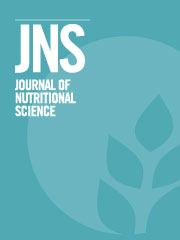
Systematic Review
Almond consumption effectively reduces blood lipid levels, thus reducing risk of heart disease.
Musa-Veloso K, Paulionis L, Poon T, Lee HY
Executive Summary
Write an executive summary in the form of a blog article on the topic of "Research into Chinese medicine treatment for Blood Lipid" summarising the research below and using language that can be easily understood by patients and avoiding medical jargon using a professional and caring tone of voice.
Write an executive summary in the form of a blog article on the topic of "Researched Chinese medicine treatments for Blood Lipid" summarising the research below in an objective and easy to understand way, and using language that can be easily understood by patients. Group the article into Chinese medicine treatments first, followed by nutrition and other treatments. Avoid using medical jargon and use a professional and caring tone of voice.
Write me a concise but easy to understand executive summary on the topic of "Chinese medicine treatments for Blood Lipid" based on the following research that I will give you. Your summary should be 2 paragraphs long in Australian English spelling and include references to the studies.
A Meta-Analysis published in 2022 in the journal Jundishapur Journal of Natural Pharmaceutical Products found that Consumption of broccoli sprouts significantly lowers blood pressure, potentially due to properties of sulforaphane. The research pulled from ten clinical trials studying human subjects' cardiometabolic health in relation to broccoli sprout supplementation. The literature used for this systematic review and meta-analysis was compiled from research found on Pubmed and Scopus up until June 2022, the range of studies spanned from 2004 to 2019. To create a valid comparison, seven of the clinical trials contained control groups. Discussing the results, it was found that the intake of broccoli sprouts brought significant reductions in both systolic and diastolic blood pressures. In addition, minor changes in blood lipid biomarkers were also tracked when compared to their baseline levels. These results confirmed the vegetable's hypotensive properties and brought attention to the potential sulforaphane-dependent effects it holds, thus underlining broccoli sprouts' value in managing cardiometabolic diseases.
A Animal Study published in 2022 in the journal Frontiers in Nutrition found that Certain natural mineral waters, when combined with a low-calorie diet, effectively reduce cholesterol and glucose levels in mice with metabolic syndrome. The study involved 125 male and female C57BL/6 mice. Ten mice were kept as a healthy control group, fed a standard diet with tap water. The remaining 115 mice were fed a high-calorie diet (60% fat, 10% fructose in water) for four months to induce metabolic syndrome, followed by a two-month treatment phase with a low-calorie diet and various types of natural mineral water (NMW). The mice were divided into six treatment groups, each receiving a different NMW, and a control group receiving tap water. The study monitored body weight and blood biochemistry over six months. After four months on a high-calorie diet, both male and female mice developed obesity, high cholesterol, and high blood sugar, with males showing greater increases. During the treatment phase, NMWs rich in sulphate, magnesium, bicarbonate, and minimally mineralized water, along with a low-calorie diet, significantly lowered total cholesterol, HDL cholesterol, and glucose levels. Sex differences were observed during both the induction and treatment phases. These findings indicate that specific NMWs, in conjunction with a low-calorie diet, may help manage blood lipid and glucose levels in metabolic syndrome, although further research is needed to confirm these results in humans.
A Meta-Analysis published in 2022 in the journal European Journal of Nutrition found that Oat supplementation interventions can improve cardiovascular health markers among adults, regardless of their diet or metabolic conditions. The methodology involved analyzing various randomized clinical trials that tested how oats, or extracts rich in oat beta-glucan and avenanthramides affected markers of cardiovascular disease risk. The sample population was predominantly subjects with high cholesterol, obesity, and mild metabolic disturbances. Interventions were compared to control arms without oats. In the discussion on results, it was found that subjects receiving the oat supplementation had improved health metrics such as total cholesterol, LDL cholesterol, glucose levels, body mass index, weight, and waist circumference. However, when the oat supplementation was compared to heterogeneous interventions, like wheat, eggs, rice, etc., reductions in the levels of glycated haemoglobin, diastolic blood pressure, HDL cholesterol, and apolipoprotein B were also seen. Despite these promising results, there were some concerns around the bias risk associated with the majority of included randomized clinical trials.
A Experimental Study published in 2021 in the journal Frontiers in Immunology found that Consuming oats significantly lessens total and LDL cholesterol levels and mediates a prebiotic effect on the gut microbiome, contributing to its cholesterol-lowering ability. In a randomized controlled study, 210 mildly hypercholesterolemic subjects from three various study centers across China were assigned to consume either 80 g of oats or rice daily for 45 days. To ascertain the effects of these diets, measurements were taken of the participants' plasma lipid profiles, short chain fatty acids (SCFAs), and fecal microbiota. Following 30 and 45 days of adherence to these diets, there was a pronounced reduction in total cholesterol (TC) and non-high-density lipoprotein cholesterol (non-HDL-C) in both the oat-consuming and rice-consuming participants. This decrease was more articulated amongst the oat consumers by the 45th day. The consumption of oats led to a significant increase in the abundance of certain beneficial gut microbiota and a corresponding decrease in unclassified harmful types. These microbiota demonstrated associations with changes in plasma lipid levels and SCFAs. The comprehensive findings strongly suggest that the cholesterol-reducing effect of oats may be largely down to its prebiotic activity, which modulates the gut microbiome.
A Systematic Review published in 2021 in the journal Journal of Ethnopharmacology found that Fenugreek supplementation improved lipid parameters in adults. A meta-analysis of 12 RCTs (14 arms) with 560 participants suggested a significant decrease in plasma concentrations of total cholesterol, triglycerides, and low density lipoprotein cholesterol, as well as an increase in plasma high density lipoprotein cholesterol, while body weight and body mass index were not altered.
A Systematic Review published in 2020 in the journal Nutrition Journal found that The consumption of green tea significantly lowers low-density lipoprotein cholesterol and total cholesterol, but it does not affect high-density lipoprotein cholesterol or triglycerides. To gather data for this study, a comprehensive literature review and meta-analysis were conducted using PubMed, Embase, and the Cochrane Library. The databases were searched from their inception to September 2019 for all studies related to the effect of green tea on blood lipids. Information from these studies, which included randomized and controlled trials, was used to estimate blood lipid changes resulting from green tea supplementation. The collected information underwent rigorous assessment for any potential bias. The analysis of data derived from 31 different trials involving a total of 3321 subjects showed that green tea intake has a significant effect in lowering low-density lipoprotein cholesterol and total cholesterol levels. However, consumption of green tea did not yield significant changes in the levels of high-density lipoprotein cholesterol or triglycerides. The results remained consistent across both normal-weight and overweight-obese subjects. No significant publication bias was detected from the collected studies, fortifying the reliability of the results.
A Systematic Review published in 2018 in the journal The American Journal of Clinical Nutrition found that Incorporating walnuts into the diet improved blood lipid profile without adversely affecting body weight or blood pressure. The present meta-analysis of controlled trials provides robust evidence for the benefits of walnut consumption on blood lipids without adversely affecting body weight or blood pressure and supports the results of epidemiologic studies showing inverse associations between walnut consumption and CVD risk. Despite walnuts being energy-dense, the consumption of walnuts does not promote weight gain and thus they can be incorporated into an overall healthy dietary pattern to enhance health benefits.
A Systematic Review published in 2017 in the journal Journal of Clinical Lipidology found that Cinnamon supplementation significantly reduces blood triglycerides and total cholesterol levels without affecting low-density and high-density lipoprotein cholesterol. The study's methodology included the systematic review and evaluation of 13 randomized controlled trials involving 750 participants. These trials examined the impact of cinnamon supplementation on blood lipid concentrations. The researchers performed a meta-analysis employing random effect models and calculated weighted mean differences for endpoints using a random effects model too. The results of the study indicated no substantial effect of cinnamon on low-density lipoprotein cholesterol (LDL-C) and high-density lipoprotein cholesterol (HDL-C) concentrations. However, a significant decrease in blood triglycerides and total cholesterol concentrations was observed. Furthermore, in a meta-regression analysis, no notable association was found between changes in lipid parameters and the dosage of cinnamon. However, changes in total cholesterol, LDL-C, and triglycerides were positively linked with the duration of supplementation.
A Randomised Controlled Trial published in 2017 in the journal Experimental and Therapeutic Medicine found that Pomegranate juice consumption over a short period promotes red blood cell production without significantly changing metabolic health and inflammation markers in healthy individuals. In the methodology of this study, ten healthy subjects (five males and five females averaging 31.8 years of age and weighing an average of 66.2 kg) were split into two groups. One group drank 500 ml of pomegranate juice every day for 14 days, while the other did not. Blood samples were taken from the subjects before and after the experimental period to measure various health markers. In the discussion of results, it was observed that pomegranate juice intake led to a substantial rise in red blood cell count, hemoglobin levels, and hematocrit levels. However, other complete blood count parameters, and levels of glucose, cholesterol, triglycerides, high-density lipoprotein, low-density lipoprotein, and C-reactive protein remained largely unaffected after the juice consumption. This suggests that pomegranate juice only had a substantial effect on increasing erythropoiesis or decreasing degradation in healthy individuals.
A Systematic Review published in 2016 in the journal Journal of Nutritional Science found that Almond consumption effectively reduces blood lipid levels, thus reducing risk of heart disease. The researchers carried out a systematic review and meta-analysis drawing on data from controlled randomised trials. Their search of the scientific literature led them to a total of eighteen relevant publications and twenty-seven datasets, which offered a comparison between almond consumption and a control group. They then unified the studies by pooling the mean differences in the effects on each blood lipid parameter using a random-effects model. The analysis found that consuming almonds had a marked beneficial effect on levels of total cholesterol, LDL-cholesterol and TAG (triacylglycerol). However, it did not significantly affect HDL-cholesterol levels. This supports data from previous observational and large-scale interventional studies that showed nut consumption reduces the risk of heart disease. This goes to show that including nuts in a balanced diet is advisable for maintaining healthy blood lipid levels and preventing heart disease.
Moderation Tools
Topic
Sign In
Users not signed in are limited to viewing the 5 most recent items of content.